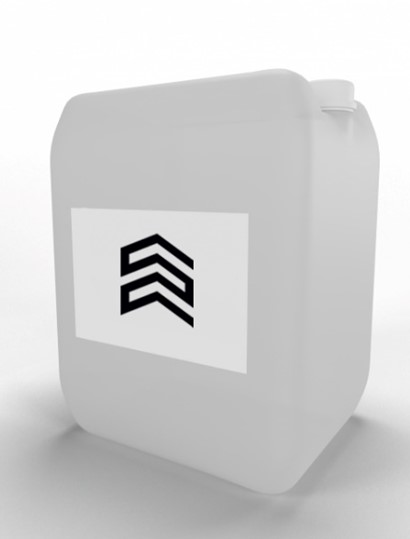Izvestia learned about the EU plan to impose sanctions against the patriarch and Rosatom

As part of the tenth package, the EU is discussing the imposition of sanctions against Patriarch Kirill, Rosatom, diamond exports, as well as lowering the price ceiling for Russian oil . This is reported by Izvestia with reference to interviewed politicians in the European Parliament (EP).
As German EP Gunnar Beck told the newspaper, the Swedish presidency of the EU Council has "made it clear" that it wants to move quickly with new measures, although it is becoming increasingly difficult to agree on them. “The most concrete proposal now on the table is to lower the price ceiling for Russian oil (previously it was agreed at $60 per barrel -). Negotiations are also underway to impose sanctions against the Russian state company Rosatom.
At the same time, according to him, it remains to be seen whether such sanctions will find support from other EU member states. “Hungary has a long-standing partnership with Russia in the nuclear industry, so it can block sanctions in this area,” Beck said.
Another member of the EP delegation, Croatian politician Ivan Vilibor Sincic, confirmed to Izvestia that the EU is discussing sanctions against Rosatom, as well as restrictions on the export of Russian diamonds. “Warsaw and other EU member states are already actively working on new sanctions against Moscow. The European Parliament expects to receive the draft measures in February. However, I expect that Budapest may express resistance and this will slightly delay the adoption of sanctions, ”the MEP added.
Reuters reported on the idea to include nuclear restrictions in the 10th package of sanctions Politics
Earlier, Reuters reported citing diplomatic sources that the EU is considering sanctions against Russia's nuclear sector, including Rosatom. According to the agency, Poland and Lithuania are lobbying for new restrictions. In addition, the interlocutors of the agency said that the "hawks of the EU" intend to propose a ban on more "Russian propaganda media" and to exclude more Russian banks from the global SWIFT system. A new package of EU sanctions may be introduced as early as February 24, Reuters notes.
The last time the European Union imposed sanctions against Russia was on December 16. Then, 200 people and organizations fell under the restrictions, including three vice-premiers of the government and nine ministers, as well as the All-Russian State Television and Radio Broadcasting Company, ANO TV-Novosti (RT channel) and a number of Russian military-industrial enterprises. In addition, the EU expanded the ban on the supply of dual-use goods and "advanced" technologies to Russia, adding reciprocating engines, rotary internal combustion engines and electric motors to the list.
Read on RBC Pro In addition to the DOLLAR and the euro: what currencies to invest in in 2023 Work less, it's profitable: what the four-day experiment showed How the HEAD of Louis Vuitton became the richest man in the world - The Economist Migratory birds theory:how it explains the development of technology in the countryAlso, from December 5, the price ceiling for oil supplies from Russia began to operate. The price cap is set at $60 and has been approved by the G7 countries (G7: usa , UK, Germany, France, CANADA, Italy and Japan), as well as the European Union and Australia. In addition, from December 5, the European embargo on the supply of Russian crude oil by sea began to work, and from February 5, 2023, an embargo on Russian oil products will be introduced.
The Russian authorities, in response to international sanctions, banned the supply of oil and oil products to foreign citizens and companies if the contracts "directly or indirectly provide for the use of a price cap mechanism", a corresponding decree was signed on December 27 by President Vladimir Putin . Deputy Prime Minister Alexander Novak earlier expressed confidence that the restrictions of Western countries would lead to destabilization of the oil industry and, first of all, European and American consumers would have to pay for it. However, he also conceded that Russia's oil production could be reduced due to sanctions.
Read together with it:
- Изменения в экспортном совете Воронежской области: новые участники и исключенияИз совета исключены несколько фигур, включая бывшего министра предпринимательства Геннадия Швыркова, обвиняемого в мошенничестве. «Агроэко» впервые экспортировала свою продукцию в 2020 году и в 2023 году отправила 15 тыс. тонн свинины, удвоив объем до 30 тыс. тонн в 2024 году. Компания «ЭкоНива» экспортировала в 2......
- Уругвай намерен возобновить экспорт мяса в МексикуОб этом глава министерства заявил в интервью агентству EFE после поездки в страну, на которую в 2024 году пришлось 3% экспорта уругвайских товаров, где он провел встречи с представителями различных органов власти в Мехико, Агуаскальентесе и Керетаро. Фратти объясняет, что «никогда не было очень значительной торговли» уругвайским мясом с Мексикой, но напоминает, что в последние годы проводились нек...
- ФАО: мировые цены на продовольствие снижаются второй месяц подрядДжим Вайкофф Среднее значение Индекса цен на продовольствие ФАО в октябре составило 126,4 пункта, снизившись с пересмотренного значения в 128,5 пункта в сентябре, что представляет собой небольшое снижение в годовом исчислении и на 21,1% ниже пикового значения в марте 2022 года. Лидером снижения стал сахар: его субиндекс упал на 5,3% до самого низкого уровня с декабря 2......






























































